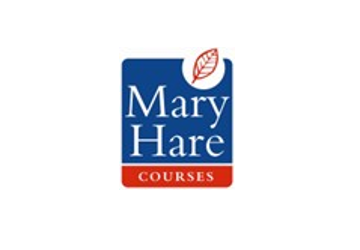See below a press release from Signature
“Campaign for GCSE in British Sign Language (BSL) a step closer
- New GCSE will be the first of its kind and will teach students how to communicate through British Sign Language
- Government to consult on the content of the course following development with experts
- A milestone moment for deaf education
Deaf charities have welcomed a public consultation on a GCSE in British Sign Language (BSL) described as a “momentous step forward” in the proposed qualification becoming reality.
Campaigners have been calling for a GCSE in BSL, a native British language used by tens of thousands of people and legally recognised language*, for more than a decade. But it is not yet available as a GCSE subject that can be taught in schools in England.
It is estimated that around 10% of deaf children use sign language in their education so a BSL GCSE would be a vital move towards genuine equality. It would also ensure that deaf children do not get left behind.
It is hoped this qualification will help to breakdown communication barriers between deaf and hearing people and educate more people about the deaf community and culture, creating a more accessible society.
Signature, the awarding body for deaf communication qualifications in the UK, have been working on a GCSE proposal for over 12 years and have previously piloted a BSL GCSE, which received positive feedback. Half of those who took part said they would study BSL further.
It was then a campaign led by deaf young people, that eventually led to the Government backing down on their initial decision to not introduce a GCSE in the 2017 Parliamentary session and agreeing to start work on the BSL GCSE.
In October 2019, the Department for Education confirmed it was working with subject experts to develop content for the BSL GCSE. The current aim is for the BSL GCSE to be taught in schools by September 2025.
Reacting to the news that the Department for Education and Ofqual have today released their GCSE in BSL consultation documents, Lindsay Foster, Executive Director at Signature said: “It’s great to get the public consultation out there, so that the public can see what a GCSE in BSL could look like.
“We have been working towards a BSL GCSE for over 12 years now, so this feels like a milestone moment. What is important now is that people have their say on subject content and we look forward to seeing the outcome of that.
“From the secondary schools we have spoken with, around 60% have told us that they would like to offer this as part of their curriculum. We really hope that over the years to come we see this in as many schools as possible.”
Susan Daniels OBE, Chief Executive of the National Deaf Children’s Society, said: “We’re delighted that a GCSE in British Sign Language (BSL) is now a step closer. It’s only fair and right that BSL users should have the opportunity to achieve a GCSE in their own, legally recognised language.
“There are incredibly high levels of support for a BSL GCSE among both deaf and hearing students, as well as from their parents. Our recent survey also found teachers overwhelmingly believe sign language would be a useful skill for both deaf and hearing students to learn.
“We expect the first cohort of school pupils will be able to begin their studies for a BSL GCSE in September 2025. It’s important that this timescale is kept, so that no more young people miss out on this opportunity.”
Rebecca Mansell, Chief Executive of the British Deaf Association said “The British Deaf Association (BDA) and the whole of the BSL community are very excited that at long last our language is gaining visibility. We now have an Act of Parliament, passed in 2022, in support of our language; we have the BSL Advisory Board, established to guide Government action.
There is a sense of real momentum and ambition to take BSL forward.
The BDA is thrilled to see these plans for a BSL GCSE taking shape, in keeping with our aim to see BSL much more widely used throughout society. It is now crucial that plans for the study of BSL in schools will sustainably deliver high-quality, Deaf-led teaching so that learners are able to attain fluency and to enter the workforce with the ability to communicate fully with Deaf colleagues and citizens.
BSL is a dynamic, dramatic language like no other which delights students whenever they get to engage with its clarity and richness.”
Martine Monksfield, Past President of The British Association of Teachers of Deaf Children and Young People said: ”For GCSE BSL to be offered to deaf and hearing young people in a mainstream secondary setting will open up doors for wider society to incorporate BSL into everyday life; the daily deaf awareness in these settings and for young people to go on to use BSL in further education, work and general society as second nature. This will make a huge impact on how BSL is viewed and respected as a language long-term in several ways”.
Daniel Jilling’s, a deaf teenager who has campaigned for a GCSE in BSL for more than four years, described the qualification as “vital”. Daniel, aged 17, and from Lowestoft in Suffolk, was born profoundly deaf without a cochlea so he cannot use hearing aids or cochlear implants. He does not use speech, so BSL is his first language.
Daniel said: “Hopefully a GCSE in BSL will be ready by 2025. I will have finished my A Levels by then, but I will be happy to know deaf students will be able to access an exam in their own language in the future.”
The teenager, who spoke at a parliamentary reception earlier this year about the importance of deaf awareness and specialist education support for deaf young people, added: “It will also allow hearing students to learn BSL so they can improve their awareness of the deaf community.”
Signature has reviewed the content of the consultation documents and compared it with their current Level 2 qualification and believe it has all the components to be a successful GCSE.
The purpose of the consultation is to gain feedback on the proposed subject content requirements which will form the basis of the new GCSE in BSL. Once the consultation has been received, reviewed and any necessary requirements changed, it can be offered by an accredited awarding body.”



